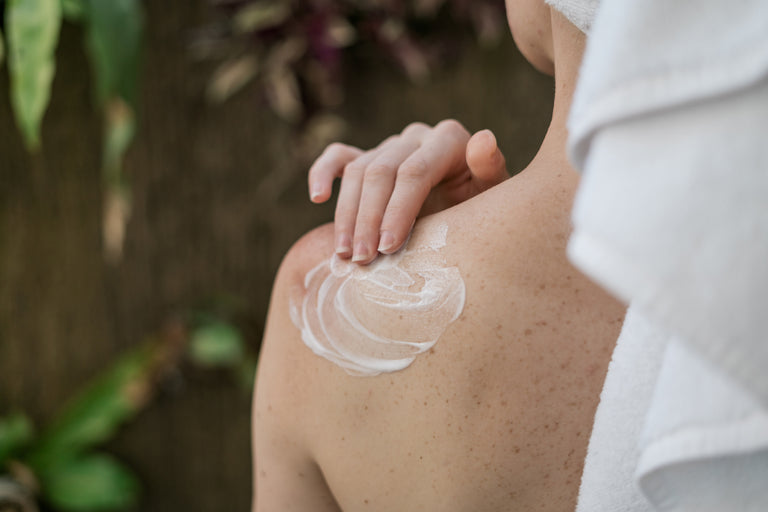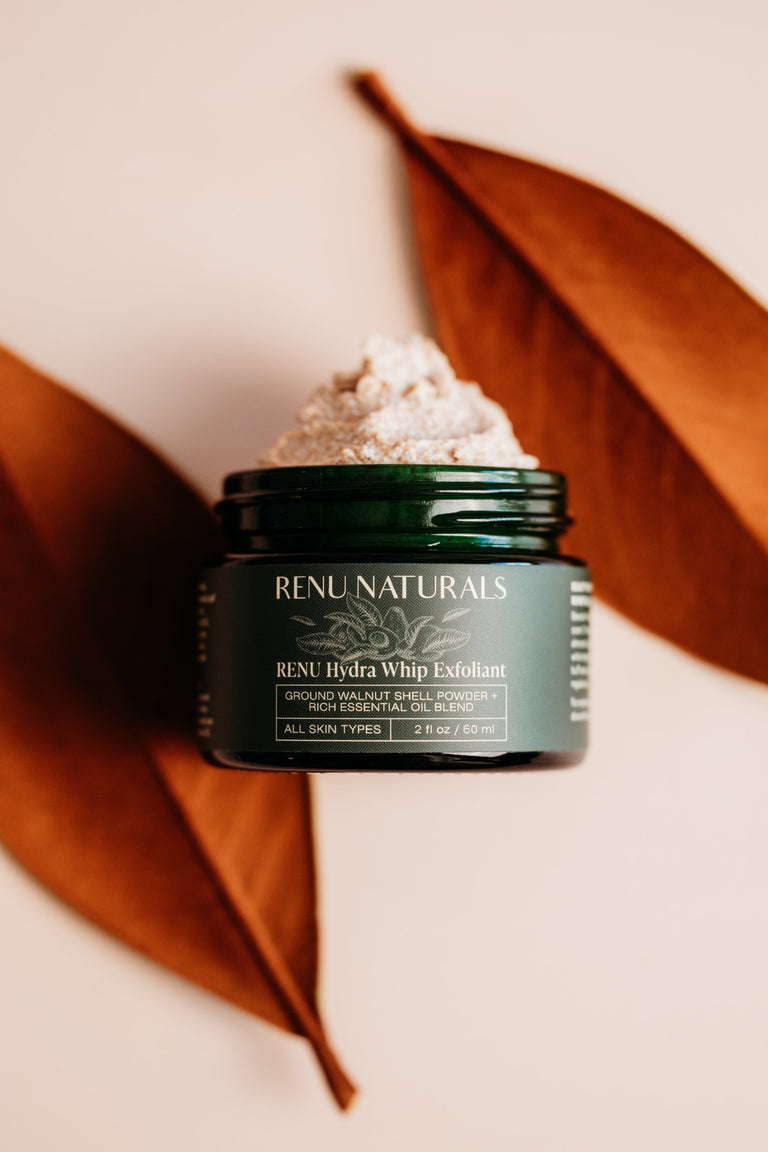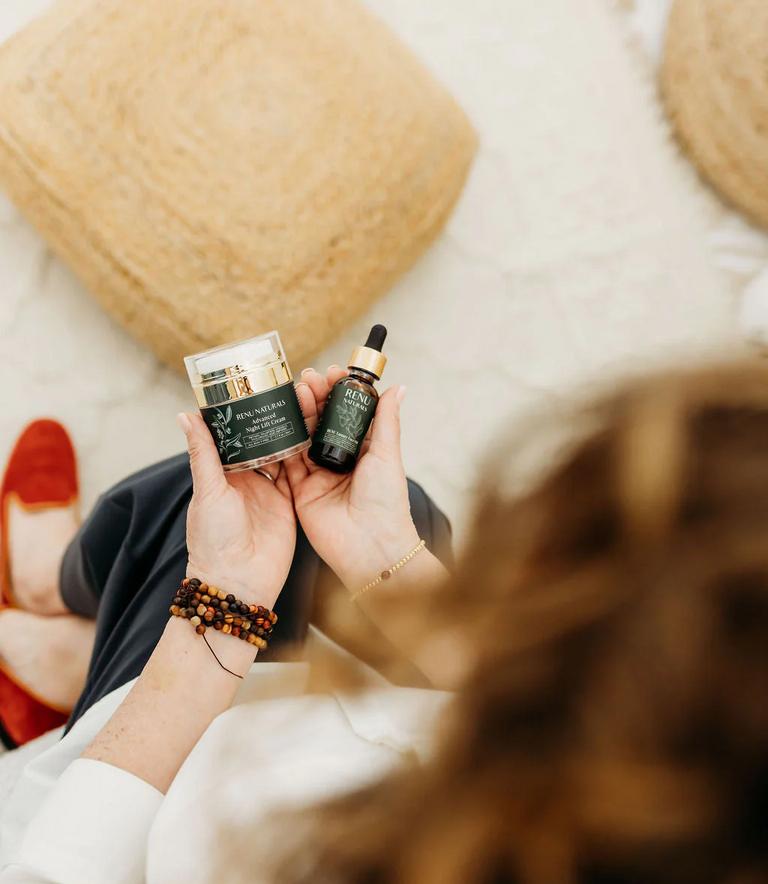Over the last decade, the natural beauty industry has come to the forefront with a bang! Products advertising keywords like “non-toxic,” “preservative-free,” and “all-natural organically grown ingredients” are selling out at a massive scale. This boom in natural skincare is largely due to influencers touting their own experiences and how ‘going natural’ cleared their skin and stopped breakouts forever!
But what does that mean for synthetic ingredients used in most consumer products? Nowadays, people are far more conscious about what they put on their skin, demanding transparency for both what’s in the product and how it’s made, from an ethical and earth-conscious standpoint.
So does this mean we should ditch one entirely in our pursuit of better, healthy, and clearer skin? If you have done your research, you will have seen the general opinion divided between going natural or sticking to traditional skincare. While certain chemicals may cause sensitivity, the same goes for natural ingredients, where not all natural ingredients will be suitable for every skin type. You decide.
What Is Natural Skincare?
There is no set definition of what makes a product natural because every individual views the term "natural" as different. In general, ‘natural skincare’ means using products with plant-based ingredients in their manufacturing and formulation. Plant-based products are readily provided to us by mother earth, also meaning that they are free of fillers like parabens, harsh preservatives, or sometimes even water.
What makes a product natural, green, and organic depends on how the ingredients were farmed and harvested. For a product to meet the “natural” standards, it must be grown without synthetic fertilizers or pesticides. Likewise, for an essential oil to be "natural,” it should be “cold-pressed” rather than exposed to heat or chemicals.
What Is Synthetic Skincare?
Synthetic skincare, on the other hand, means products formulated with human-made and laboratory manufactured ingredients. These ingredients are backed up by scientific data and research and are, in essence, chemical copies of natural ingredients.
Why Synthetic Skincare Is Controversial
Researchers and consumer health advocates have seen a connection between harmful chemicals in consumer products and the rise of unexplained diseases that affect both men and women. Suspected carcinogens like formaldehyde (used in nail polish and body wash) and coal tar (used in shampoos and hair dyes) are now under scrutiny in beauty products. Heavy metals, along with hormone-disrupting chemicals like parabens and phthalates, are also recognized as unsafe, showing adverse effects at even small dosages. What is unclear is the interaction of these chemicals among themselves and in our bodies. Parabens can react with phthalates to produce a derivative or a compound far more dangerous or aid in the overall additive effect of the disrupting hormone production. Recent studies are now unlocking the link to several illnesses to the buildup of these chemicals over time in our bodies.
Benefits of Natural Skincare
Ingredients are Skin Deep
Everything we put on our skin becomes part of our body either through direct contact, absorption, inhalation or via cells. No matter the path, skincare products eventually enter our bloodstream and can affect bodily systems.
Everything Ends Up In The Sea
As mentioned, nothing stays on the surface of your skin. As “all drains lead to the ocean,” we should be mindful as individuals and play our part in keeping the environment safe. Synthetic ingredients affect wildlife and their habitats, so being mindful is important universally.
No “Secret Ingredients”
Most synthetic skincare products can get away without mentioning certain ingredients under the banner of “trade secrets.” There is no such loophole when it comes to natural skincare, as there isn’t a reason to hide any ingredients!
Synthetics Can Pass Onto Developing Babies
As the body absorbs topical skincare products, they readily enter the bloodstream. If you’re expecting, it is no surprise that the baby’s body is absorbing the same chemicals. Many synthetic compounds are estrogenic and affect the balance of hormones and may impact the development of the baby.
Natural Skincare Is Nourishing For Your Skin
Our skin is an alive and breathing organ, with cells active and working without rest. They, too, get hungry and need energy and nourishment. Our skin readily absorbs natural skincare products. These natural products act as a food source for the cells, nourishing our skin and body alike.
How to Switch Toward “Green Beauty?”
Making the switch definitely shouldn't be an overnight process - but it's something that should happen NOW. Making the switch to clean skincare means you are putting healthy and natural ingredients in your body that promote optimal well-being so you don't have to sacrifice health for beauty. The first thing to identify is to know your skin type and what suits it. Book an appointment with a qualified esthetician . Ask about ingredients likely to cause a reaction on your skin. Your esthetician will also help you outline a workable skincare routine that works for you.
Next, change one skincare product at a time. This strategy will make it easier to know which ones suit you and which ones cause a reaction. Introduce a new product every week to better monitor your skin. Be patient. You aren’t likely to see results until three weeks after you switch to natural products. Consistency is key. Do a little research. Read up on a few ingredients. Know what your skin requires. For instance, Willow Bark extract is a derivative of salicylic acid that helps reduce acne. Likewise, if you are looking for an anti-aging product, antioxidant ingredients and vitamins like C and E should be on the list. Another fine discovery is Vitamin A through beta-carotene's — such as carrot seed oil and rosehip seed oil, where your body converts it into retinol molecules, another anti-aging product known to smooth wrinkles and stimulate collagen production.
Terms to Look For when Choosing Natural Products:
Certified Organic
For a product to be “certified” as organic by an organization such as FDA, it needs to 95-100% formulated by ingredients farmed and harvested naturally. Natural farming entails cultivating without the aid of any chemicals (inclusive of fertilizers and pesticides). If a product claims it is made up of organic ingredients but is not certified, it means it contains 70% of organic ingredients.
Phthalate-Free
Phthalate is a product found in soaps and shampoos. Diethylphthalate (DEP), a derivative of this, is used in fragrance as an ingredient. As of 2016, phthalates are a known carcinogens.
Paraben-Free
Paraben is a preservative; its inclusion keeps bacteria and mold from building within products. These often include the following terms on a list of ingredients: methylparaben, propylparaben, butylparaben, and ethylparaben. Researchers found that parabens get easily absorbed by your skin, and they stay in your body tissues and fluids.
Sulfate-Free
Sodium lauryl sulfate, better known as a “surfactant,” are virtually in all and shampoos. While sulfates help remove dirt and dead skin cells from your scalp, they are a known irritant that can also strip your hair of its natural oils, making it dry and brittle.
Bottom Line
People are becoming very cautious about what they put on their skin and what they consume. Besides, going all-natural and organic is better for the environment, as well. Lots of green, natural skincare companies like Renu Natural's are ethical and have proper sourcing of our ingredients. Also, the lack of by-products in our products is a big plus as the manufacturing process focuses on the main compound. Likewise, most natural skincare products generate significantly less “residual waste” as they have eco-friendly packaging. Also, supporting your local organic skincare products reduces the overall carbon footprint as less shipping and transport are involved. Just a few things to contemplate before making your next skincare purchase, for your health, your skin’s health and the health of our environment!



